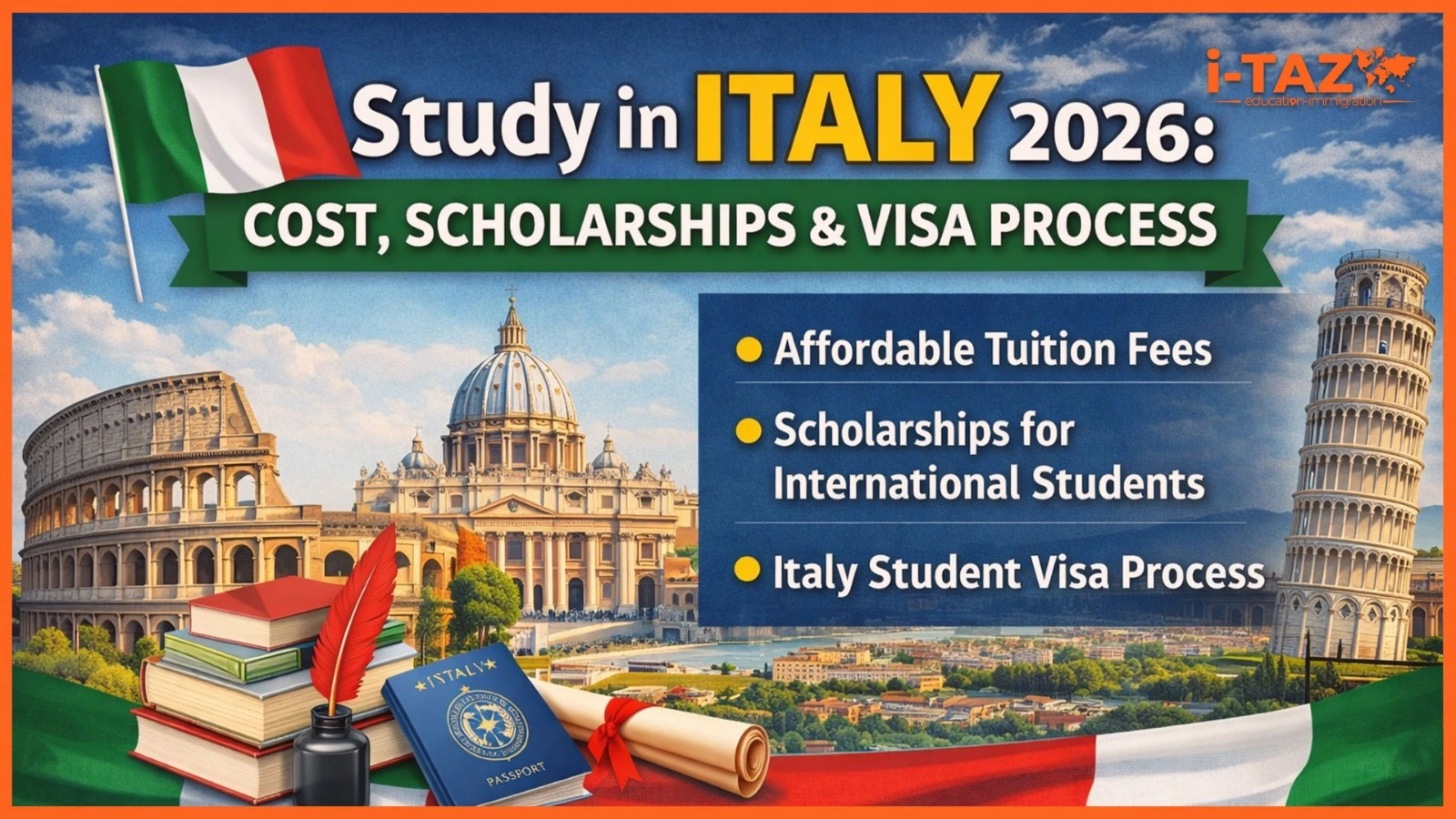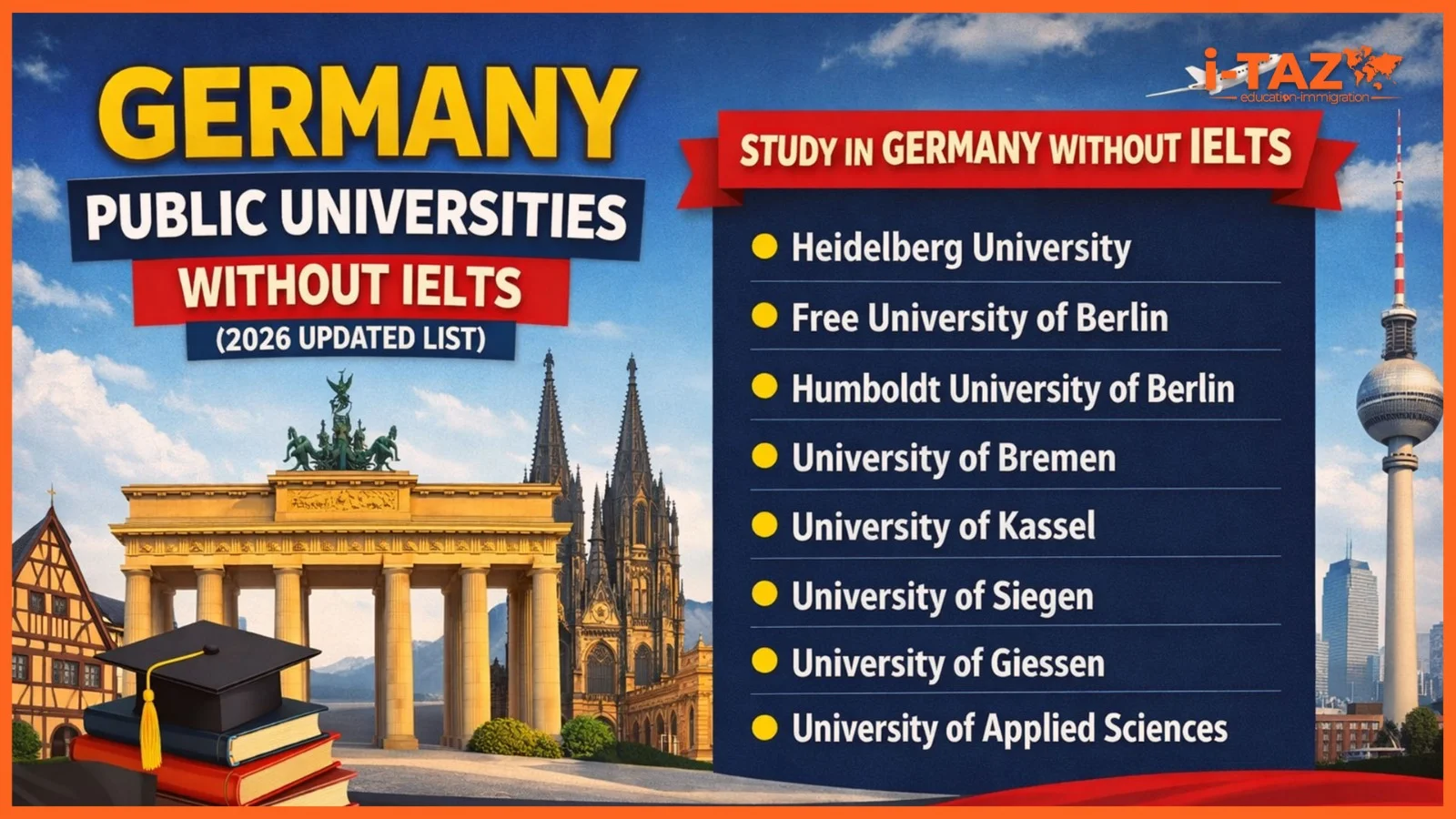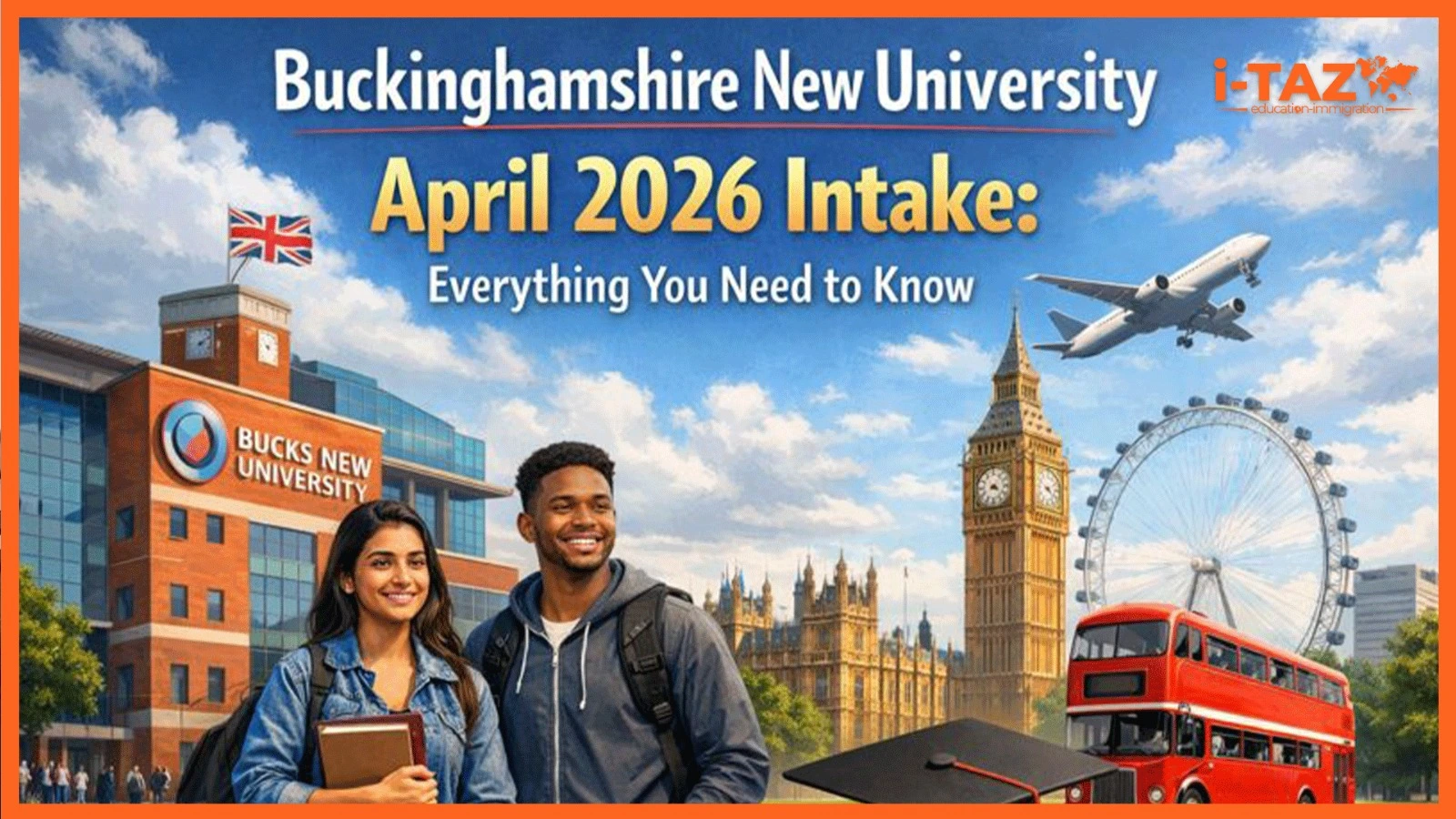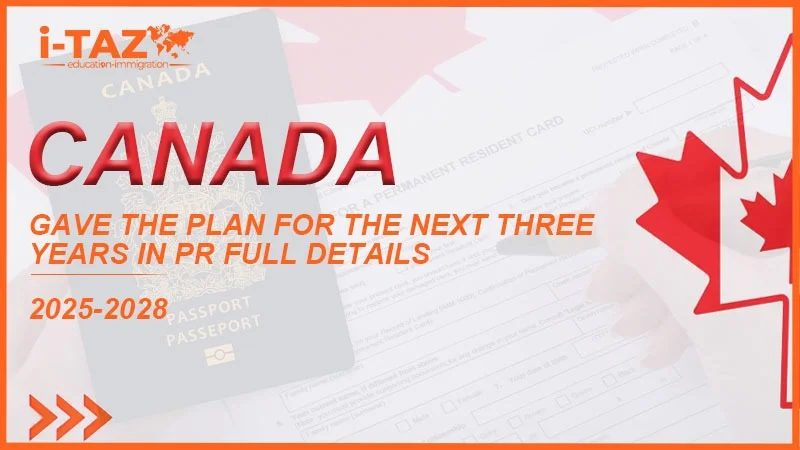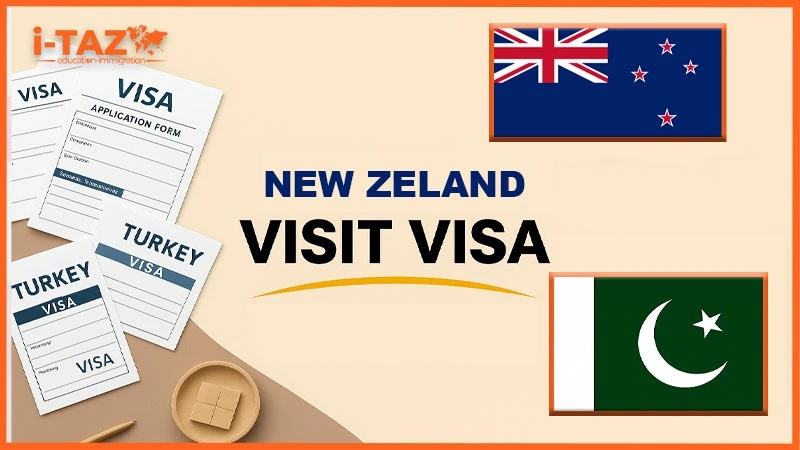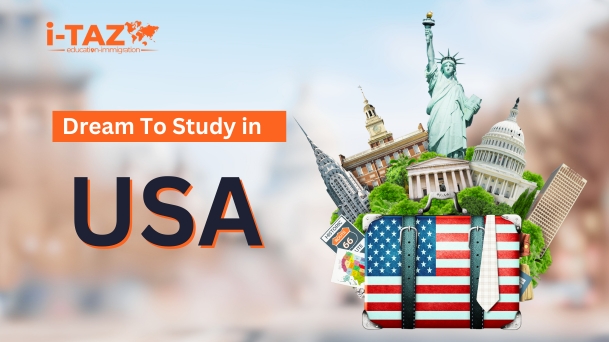Studying in the USA is a dream for many Pakistani students. With its renowned universities and extensive resources, the USA provides an unparalleled educational experience. Whether you’re aiming for top-notch research opportunities or seeking a vibrant cultural exchange, this guide will walk you through the essential steps to make your dream a reality.

Why Study in the USA?
The USA is renowned for its world-class education system and diverse academic offerings. Here’s why it’s a top choice for international students:
1. Exceptional Education: The USA is home to some of the top universities globally, offering state-of-the-art research facilities and access to cutting-edge technology. Whether you’re pursuing a degree in engineering, medicine, business, or the arts, you’ll find a wide array of programs that meet the highest academic standards. The country is known for its innovation and commitment to research, with many universities actively collaborating with industries, government bodies, and international organizations.
2. Cultural Diversity: The USA is a melting pot of cultures, providing a unique opportunity for students to engage with people from all over the world. This diversity, along with the rich American culture, fosters personal growth, helping students develop adaptability and cross-cultural communication skills. From celebrating traditional holidays like Thanksgiving and Independence Day to experiencing the influence of American pop culture, students gain a deep understanding of the country’s history, values, and social dynamics. Living in the USA also allows you to experience various traditions, festivals, and customs, enriching your global perspective.
3. Career Opportunities: Graduating from an American university offers more than just a degree. It equips you with globally recognized qualifications and opens doors to career opportunities both in the USA and abroad. The USA’s Optional Practical Training (OPT) program allows international students to work in their field of study for up to three years after graduation, providing invaluable work experience that enhances employability.
4. Cutting-Edge Innovation: The USA leads in technological advancements and groundbreaking research. Universities encourage students to explore innovative ideas and solutions to real-world problems, allowing you to work on projects that shape the future in various industries.
5. Networking and Global Connections: Studying in the USA allows you to build a network of connections that can benefit your career for years to come. Universities host numerous events, career fairs, and conferences where you can meet industry leaders, professors, and fellow students who share your professional aspirations.
6. Flexibility in Academic Programs: The USA offers flexibility in education, allowing students to choose elective courses alongside their major. This enables you to tailor your education to fit your personal interests and career goals. Moreover, students have the opportunity to transfer between universities or change majors, providing greater control over their academic journey.
Understanding the US Education System
Navigating the US education system can be complex, but understanding its structure is crucial for making informed decisions about your academic future:
Types of Institutions:
The US offers a wide range of institutions, including universities, liberal arts colleges, and community colleges. Universities are typically larger and provide undergraduate and graduate degrees, while liberal arts colleges focus on broad-based education in humanities, sciences, and arts. Community colleges, on the other hand, offer two-year Associate’s degrees and are a more affordable option for students looking to transfer to universities of USA later.
Degree Levels:
1. Associate’s Degree: Typically a two-year program offered at community colleges, an Associate’s degree can serve as a stepping stone to a Bachelor’s degree or prepare you for entry-level jobs.
2.Bachelor’s Degree: A four-year undergraduate degree that provides comprehensive knowledge in your chosen major. It’s a key requirement for many professions and opens doors to further studies or employment.
3.Master’s Degree: This advanced degree, usually taking two years, allows you to specialize in a specific field, making you more competitive in the job market. Many international students pursue a Master’s degree to boost their expertise.
4.Doctoral Degree: A PhD or professional doctorate represents the highest level of education, focusing on research and advanced study. It can take 3-6 years to complete and is essential for careers in academia and certain specialized industries.
Credit System:
US universities follow a credit-based system, where each course earns you a certain number of credits toward your degree. Typically, students need to accumulate a specific number of credits to graduate, making it essential to plan your courses strategically.
Liberal Arts Approach:
One unique feature of the US education system is its liberal arts approach, allowing students to take courses from various disciplines, even if they are not directly related to their major. This broadens your knowledge base and encourages critical thinking, creativity, and problem-solving skills.
Extracurricular Opportunities:
US universities emphasize a well-rounded education, offering opportunities to engage in extracurricular activities such as sports, clubs, internships, and research projects. These activities help you develop leadership skills, network, and enhance your overall university experience.
Accreditation:
Ensure that the institution you choose is accredited by recognized agencies, as this ensures the quality of education and may impact the recognition of your degree globally.

Eligibility Requirements for Pakistani Students
To study in the USA, you need to meet certain criteria:
- Academic Qualifications: Ensure your academic background meets the requirements for your chosen program.
- Standardized Tests: Prepare for and take necessary tests like the SAT, GRE, or TOEFL/IELTS.
- Language Proficiency: Demonstrate English proficiency through standardized tests or other accepted methods.
Application Process
Here’s how to navigate the application process efficiently:
- Research and Choose Schools: Identify universities and programs that align with your academic goals and interests.
- Prepare and Submit Applications: Gather and submit all required documents, including a Statement of Purpose (SOP) and Letters of Recommendation (LORs).
- Application Fees and Deadlines: Be aware of the fees and deadlines for each application to ensure timely submission.
Scholarships and Financial Aid
| Scholarship Name | Description |
|---|---|
| Fulbright Program | Offers comprehensive funding for graduate studies, including tuition, living expenses, and travel. |
| Hubert H. Humphrey Fellowship | Provides funding for professional development, leadership training, and non-degree academic study. |
| University-Specific Scholarships | Many US universities offer scholarships based on merit, need, or specific criteria for international students. |
| Joint Japan/World Bank Graduate Scholarship Program | Provides scholarships for students from developing countries to pursue graduate studies in development-related fields. |
| Aga Khan Foundation International Scholarship Program | Offers financial assistance to outstanding students from developing countries for postgraduate studies. |
| Global Undergraduate Exchange Program (Global UGRAD) | Fully funded semester-long scholarships for Pakistani undergraduate students covering tuition, travel, and living expenses. |
| Knight-Hennessy Scholars Program | Provides full funding for graduate study at Stanford University, focusing on leadership and problem-solving skills. |
| AAUW International Fellowships | Offers fellowships to women from around the world for full-time graduate or postgraduate studies in the USA. |
| Global Leaders Fellowship | Covers tuition and provides financial aid for living expenses for international students pursuing graduate programs at George Washington University. |
| Rotary Peace Fellowship | Fully funded fellowships for students pursuing master’s degrees in fields related to peace and conflict resolution. |
| Inlaks Shivdasani Foundation Scholarships | Provides full funding for students from India and select Asian countries to study at top US universities in fields like humanities, law, and social sciences. |
Preparing for Life in the USA
Transitioning to life in the USA involves practical preparations:
- Housing and Transportation: Arrange accommodation and transportation before you arrive.
- Cultural Adaptation: Familiarize yourself with American culture and social norms to ease your transition.
- Financial Management: Budget for living expenses and explore options for part-time work if permitted.

Challenges and How to Overcome Them
Cultural Differences:
- Embrace the new culture and seek support if needed.
- Learn about local customs and traditions to integrate smoothly.
- Language barriers may be tough at first, so practice regularly and don’t be afraid to ask for help.
Homesickness:
- Maintain connections with family through regular calls and messages.
- Build new social networks with fellow students and local communities.
- Participate in student organizations or cultural groups to create a sense of belonging.
Academic Pressure:
- Manage your time effectively with a well-structured study plan.
- Seek academic support from professors, counselors, or tutors when necessary.
- Don’t hesitate to join study groups, which can help share the workload and build camaraderie.
Financial Management:
- Budget your expenses carefully and explore part-time work opportunities, if your visa permits.
- Apply for scholarships or financial aid to ease the financial burden.
- Keep track of your spending and use student discounts whenever possible.
Adapting to New Weather:
- If you’re moving to a country with a different climate, prepare by packing the right clothing.
- Stay updated on weather forecasts and plan activities accordingly.
- It may take time to get used to new weather conditions, so be patient and take care of your health.


